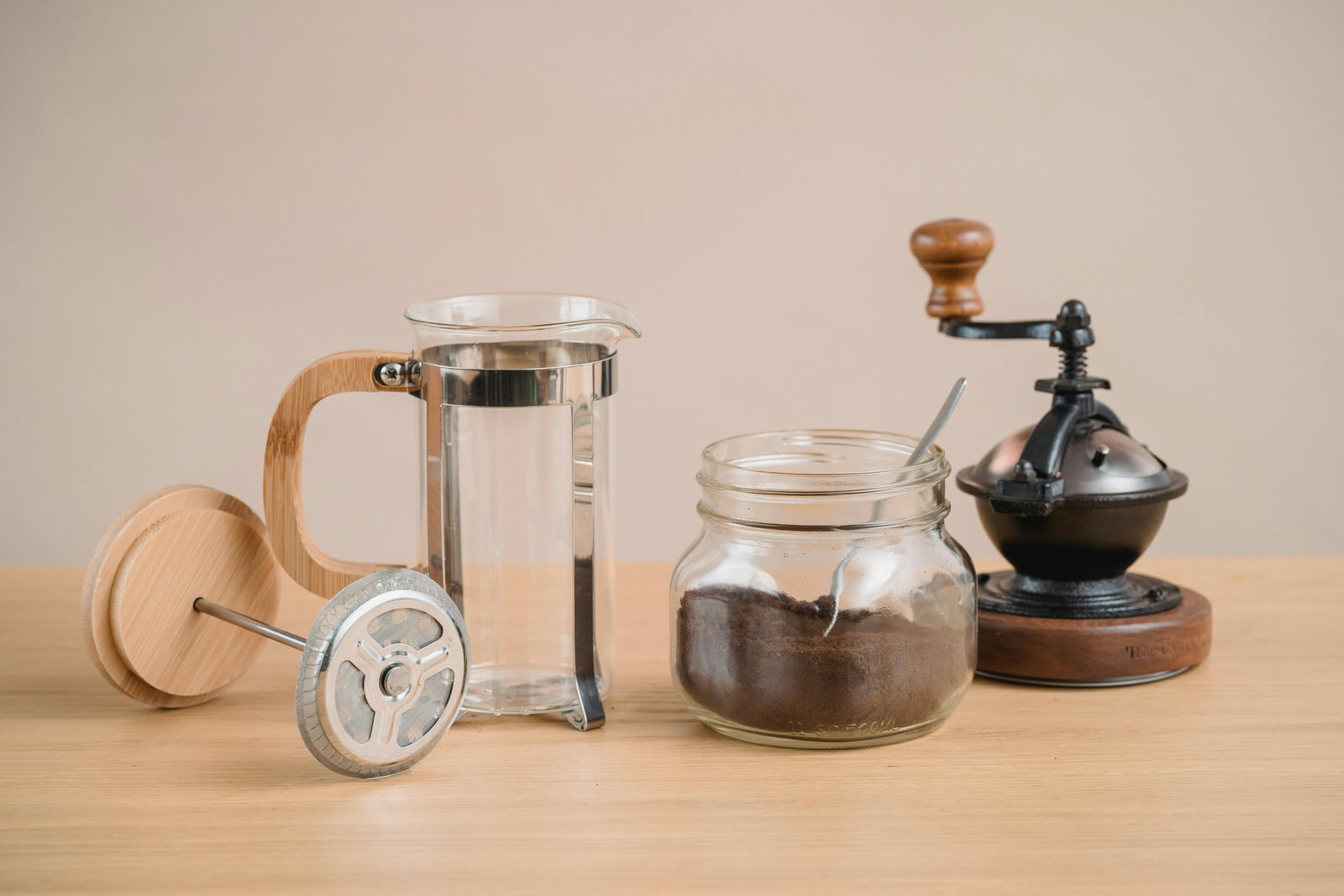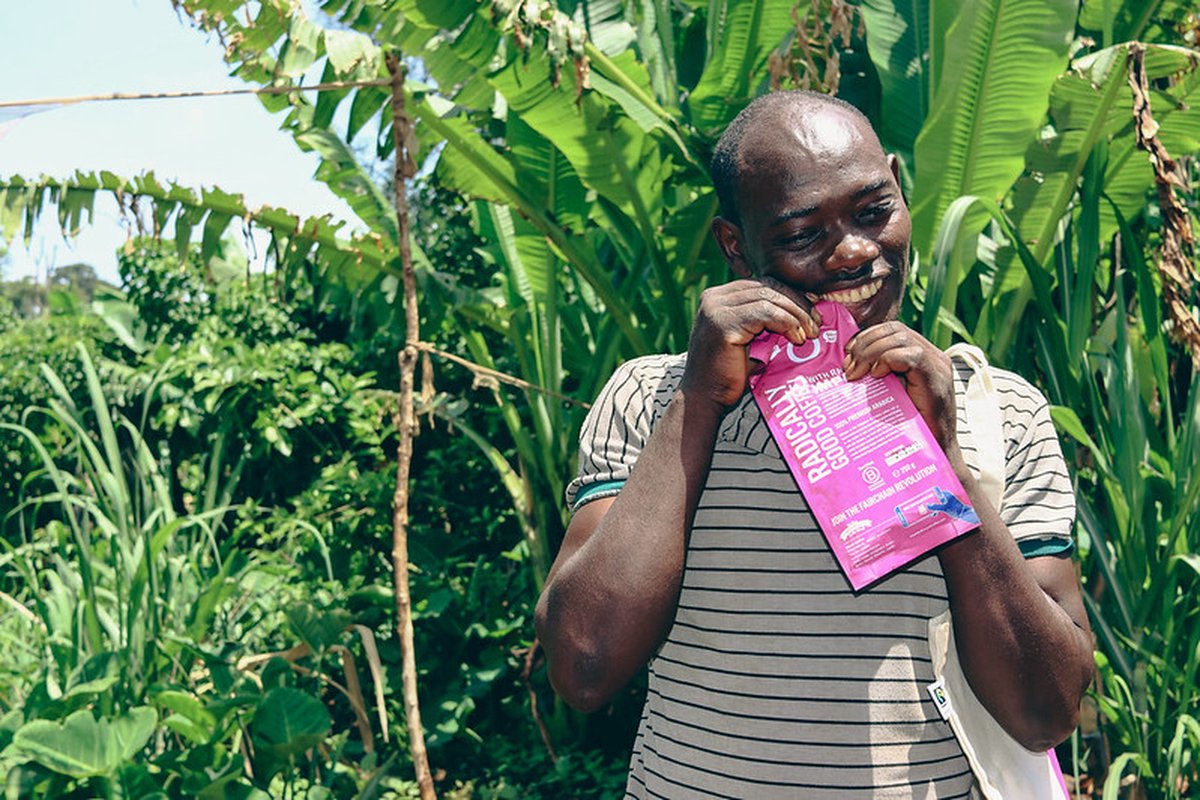Your Cart is Empty
🚚 ALL ORDERS PLACED OVER CHRISTMAS AND NEW YEAR WILL BE SHIPPED ON MONDAY 5TH JANUARY 🚚
🚚 ALL ORDERS PLACED OVER CHRISTMAS AND NEW YEAR WILL BE SHIPPED ON MONDAY 5TH JANUARY 🚚
November 18, 2021 5 min read

Flip… RUN RUN RUN…
To just your local supermarket? How convenient actually… Right?
Well… To make your favourite coffee accessible and as easy to get on THIS side of the world, the coffee farmers on the OTHER side must run on a tight schedule ALL. YEAR. LONG. A coffee producer’s work never stops.
The journey from crop to cup is long and full of risks.
Let’s dive deeper in the hard work our coffee producers do!
For the coffee that is available now, the hard work started four years ago.
It takes a coffee shrub approximately 3/4 years to mature after it has been planted.
Only then will it be able to produce coffee cherries which can be used to grow coffee beans. This is already a lengthy and labour-intensive process that requires the highest amount of care. And on top of that: the change in climate makes the beans arduous to grow normally.
The rising temperatures intensify drought, increase the range of diseases, and kill large swaths of the insects that are there to help pollinate the coffee plants (Lisa, Schipper, Navroz, & Mulugetta, 2021). Quoted from a recent study in the journal of climatic change: “About half of the land around the world currently used to produce high-quality coffee could be unproductive by 2050”.
Let me repeat that: half of the land could and will be unproductive if we continue like this. And by this I mean, keeping our eyes and ears closed and thinking that we will keep under the rise of 1.5 Celsius without doing ANY-THING. Big leaders, small leaders, non-leaders, all of those involved in the “bla bla bla” at COP26, take the lead and take responsibility for yourself, your grandchildren, the planet, and yes, for your cup of coffee.

Many coffee-producing countries face extreme poverty and lack adequate social infrastructure. Coffee farmers and their families are incredibly vulnerable and dependent on the coffee industry in the susceptible coffee market. A decade ago, numbers showed that coffee-producing countries could provide for their essential health and education needs. However, there is not much further from the truth. Daniele Giovanunnucci, president of the Committee on Sustainability Assessment (COSA), states in an interview that: “The key has been a declining income and more aggressive production systems requiring greater investments and risks. In real-dollar prices, farmers earn less than they did decades ago” (Perfectdailygrind, 2018).
We should be ashamed (to put it mildly) (read: embarrassed, sorry, feeling guilty, regretful) that big companies make a stupid amount of money and spend it on even more stupid stuff.
And that while coffee farmers, the ones who are doing the hard work, are facing the challenge of simply deriving a living income from the hard work they do.
After the four years it takes to mature the coffee shrub, the harvest season begins in October. Our organic coffee farmers get right up to the coffee plants and carefully HAND-PICK all the ripe cherries. Uhu, can you imagine? This step takes a lot of time and concentration. However, the good things in life come to those who wait and thus take time. Only with carefully handpicking the coffee beans can you make sure that each batch of coffee beans will deliver the flavour you want.
And as you might guess… Big coffee does not care… Handpicking costs time… And time is money… Therefore, they skip the step of handpicking harvesting and use strip harvesting where all the cherries fall onto cloths, along with leaves and twigs tore off in the process, and later the coffee farmers make an attempt to sort the ripe cherries from the unripe ones. Or mechanical harvesting, where the coffee cherries are literally being shaken off from the plants with extensive machinery. In both cases leading to yield a lower-quality product than handpicking. And indirectly fewer jobs for the coffee farmers.
Besides the long hours in the sun and utmost concentration required for harvesting the coffee beans, coffee picking brings dangers and health hazards with it. Working long hours in the sun can result in skin cancer and exhaustion; injuries from cutting tools or contact with unguarded machinery; hearing loss or impairment due to noisy machines; poisoning and long-term health problems from pesticide use or exposure; snake and insect bites. Just to name a few. And these collective conditions (together with other challenges they face) can lead to significant amounts of stress amongst workers.
And these are just the first steps in the journey to your beloved cup of coffee. More about the other crucial steps in the following weeks. Back to the topic now.

We need to have an economic foundation that provides coffee farmers with a sustainable living income.
Inequality and poverty are the reasons coffee farmers cannot produce optimally as there are many factors that a smallholder farmer needs to become successful: such as credit, inputs, training, tech, and access to the market.
Farmers need the facilitation of credit to purchase certain products, items, goods, and services. In developing countries, there is often a lack of accessibility to credit. Hence, we at Moyee chose to provide farmers with the facilitation of credit. Now, they will be able to buy the things they need.
Moreover, we aim to train farmers in the field of the utilization of those services which they purchase. We teach them financially so that they know how to handle their money. Moyee and FairChain also provide a tech solution to the issues which these farmers face. If they can digitize their goods, they will get more insight into crucial processes surrounding the harvesting times and financial issues.
Intense market competition, price fluctuations, and climatic instability are just three examples of the challenges that coffee producers face.
Besides fighting big coffee and fighting for the living income that farmers deserve. Moyee Coffee aims to keep doing the needed research and invest in more innovative climate-resilient farming practices that can help farmers prepare and adapt to the amid changing weather patterns. More about that later.
Now, as ethical consumers, it’s (y)our responsibility to be aware of the conditions farmers face and make your purchases regarding.
Guest post by Anna Bruining - Moyee Coffee Netherlands
April 21, 2025 4 min read
Brewing exceptional coffee at home is both an art and a science. Whether you're new to home brewing or an experienced coffee lover, having the right beans, equipment, and techniques will elevate your daily cup.
April 21, 2025 3 min read
The coffee industry has long been marred by economic disparities, with a significant portion of profits accruing to consuming countries, leaving producers with minimal returns. Moyee Coffee seeks to address this imbalance through its commitment to ethical sourcing and the FairChain model, ensuring that value addition benefits coffee-producing nations.
April 21, 2025 5 min read
Exploring new coffee recipes can elevate your home brewing experience, offering a variety of flavors and styles to enjoy. Here's a guide to some must-try recipes, a detailed method for crafting the perfect latte, and insights into the differences between iced coffee and cold brew.


